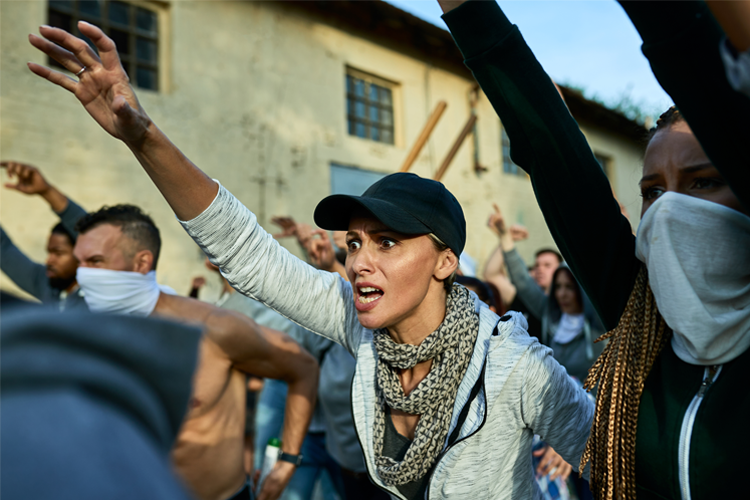Voices in the Rain: The Tacoma Standoff Against Arms Transfer to Israel US Arms Ship Protests
In the shadow of the Port of Tacoma, a scene unfolded that was as poignant as it was powerful. Hundreds of pro-Palestinian demonstrators, undeterred by the relentless Washington rain, gathered with a resolve to block the military supply vessel Cape Orlando. Their belief: that this ship was set to carry weapons from the United States to Israel, which they feared would be used in the ongoing campaign against Gaza.
The Rally Cry: Ceasefire Now
The protesters, a diverse coalition of individuals from various backgrounds, were united by a single demand—a ceasefire in Gaza. Their voices, amplified by chants and banners, were not just a call for peace but a critique of U.S. foreign policy and its financial support to Israel. Wassim Hage, a community outreach coordinator with the Arab Resource and Organizing Center (AROC), emphasized the urgency of their demands, highlighting the need for a critical examination and action on U.S. foreign policy.
A Symbolic Stand: The Watermelon Protest
The demonstrators at Tacoma adorned their banners with slices of watermelon, a creative and symbolic nod to the colors of the Palestinian flag. This visual protest was more than a mere display; it was a statement of solidarity and a call to recognize the human rights of Palestinians.
Indigenous Voices: A Shared History of Displacement
The protest was marked by the participation of Indigenous warriors from the Puyallup Tribe, who took to the waters in a ceremonial canoe. Patricia Gonzalez, representing the Water Warriors Council, drew parallels between the historical violence and displacement faced by her ancestors and that of the Palestinians. This shared history of suffering and the intergenerational trauma that followed resonated deeply with the protesters, strengthening their resolve.
A Jewish Voice for Palestinian Rights
Among the protesters was Abby Brook, a Jewish anti-Zionist whose experiences in Israel and the occupied territories shaped her activism. Her firsthand encounters with the realities of occupation and settler colonialism in Palestine left an indelible impact, driving her to take a stand against what she described as an apartheid state military occupation.
The Blockade: A Symbol of Resistance
The “block the boat” rally saw people of all ages and backgrounds coming together to disrupt what they viewed as an ongoing genocide in Gaza. Their actions, which included blocking traffic around the port and delaying the ship’s voyage, were a testament to the power of grassroots mobilization.
The Response: A Government’s Silence
Despite inquiries, the Pentagon’s response regarding the nature of the cargo was limited, citing operational security. This lack of transparency has only fueled the protesters’ determination to seek accountability and ensure that U.S. military assistance is not contributing to the conflict in Gaza.
The Financial and Ethical Implications
President Joe Biden’s call for increased aid to Israel, amounting to over $14 billion, has raised significant concerns among the protesters. The U.S. funds a substantial portion of Israel’s defense budget, and the potential use of these funds and weapons in Gaza has prompted calls for greater oversight and transparency.
The Unseen Cargo: A Question of Accountability
The difficulty in verifying the exact nature of the weapons being transferred to Israel was highlighted by Elias Yousif of the Stimson Center. Unlike the detailed reports on arms transfers to Ukraine, there is no equivalent transparency regarding the U.S. arms transfers to Israel, raising questions about their use in the conflict.
Human Rights Watch: A Call for Oversight
Sarah Yager from Human Rights Watch emphasized the need for U.S. lawmakers to oversee military assistance to Israel, ensuring that it does not contribute to violations of international law. The organization has advocated for a suspension of weapon transfers to all parties in the conflict, given the risk of grave abuses.
The Outcome: A Delayed Victory
Despite the cargo being loaded onto the Cape Orlando by nightfall, the protesters viewed their actions as a success. They had managed to delay the vessel, and every hour gained was seen as a victory in preventing further violence in Gaza.
Conclusion: The Power of Collective Action
The blog post concludes by reflecting on the significance of the Tacoma protests. It serves as a powerful reminder of the impact collective action can have in challenging and potentially altering the course of international policies. As the world grapples with complex geopolitical conflicts, the voices at Tacoma stand as a beacon of hope and a call to action for peace and justice.



